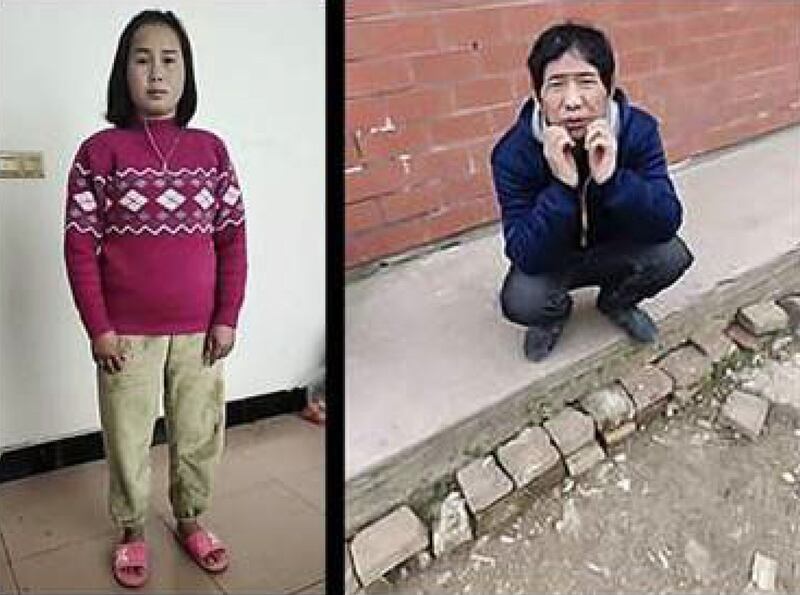A Lao woman kidnapped from her home in China and held for ransom is still alive, family members and other sources say, citing social media postings offering the woman for sale.
Ketkeo Xayavong, who had already been sold by traffickers to a Chinese “husband" in Jiangxi province, was taken from her home on Feb. 23 by an unidentified group who confiscated her mobile phone, a friend and neighbor recently told RFA’s Lao Service.
“They said they would return her phone after she was sold to a new husband,” RFA’s source said, speaking on condition of anonymity for security reasons. “She was then sold right away to another human trafficking gang in Hunan, but this gang doesn’t like her because she’s so old,” she said.
“Ketkeo’s story is now going viral on TikTok, with some people saying that she left her husband and now wants to get married again,” another friend said, also declining to be named. “Another post described her as an ‘available single woman,’ giving contact information for anyone interested in buying her.”
Another post expressed concern for Ketkeo’s well-being, urging anyone encountering her to contact her family in Laos.
Ketkeo’s sister told RFA that the traffickers holding her have now asked her Chinese husband to pay a ransom for her return.
“After seeing our stories about Ketkeo on social media, two of her friends who are also married to men in China say that the traffickers don’t want to sell her anymore,” she said. “Instead, they want to return her to her husband for a ransom which they’ve reduced from 200,000 yuan (U.S. $31,000) to 20,000 yuan (U.S. $3,100).”
Ketkeo’s husband had already paid 130,000 yuan (U.S. $20,000) for her as ‘dowry’ when he first bought her, though, and now just wants his money back, Ketkeo’s sister said. “He and the kidnappers are now negotiating for her return. Her husband knows where Ketkeo is, but doesn’t want to say,” she added.
Ketkeo’s sister said her family is happy just knowing that Ketkeo is still alive, she said.
“We’ve been worried about her for the last two months. I thought that my sister might already be dead or, even worse, been murdered. The news that she is still alive is encouraging,” she said.

Laos asks for information
An official of the Foreign Affairs Department of Xayaburi province told Ketkeo’s family at the end of last week that they should now wait “four or five days” for news of progress in the case, her sister said.
Meanwhile, a member of the province’s anti-human trafficking unit told RFA they have asked family members for details to help in their own investigation. “We want to know more about how she ended up in China, how she disappeared, and how she was lied to and so on,” he said.
“Then we’ll forward those details to the provincial police and the provincial foreign affairs department, and these two departments will write a letter to the Lao Ministry of Foreign Affairs, which will then contact the Lao embassy in China,” he said.
Young women continue to be trafficked from Laos to China in spite of NGO and government efforts to alert them to the dangers involved in trusting recruiters’ promises of well-paid work across the border, police officials say.
The Lao National Committee on Anti-Trafficking in Persons dealt last year with 25 cases of human trafficking involving 40 human traffickers, Lt. Col. Kikeo Chanthalangsy, deputy chief of the committee, said at an annual meeting of the group on March 3.
The U.S. State Department’s 2021 Trafficking in Persons Report said Laos had increased its overall efforts to combat trafficking during the year, but fell short in victim identification and screening procedures and failed to adequately investigate suspected perpetrators of sex trafficking.
Translated by Max Avary for RFA’s Lao Service. Written in English by Richard Finney.
